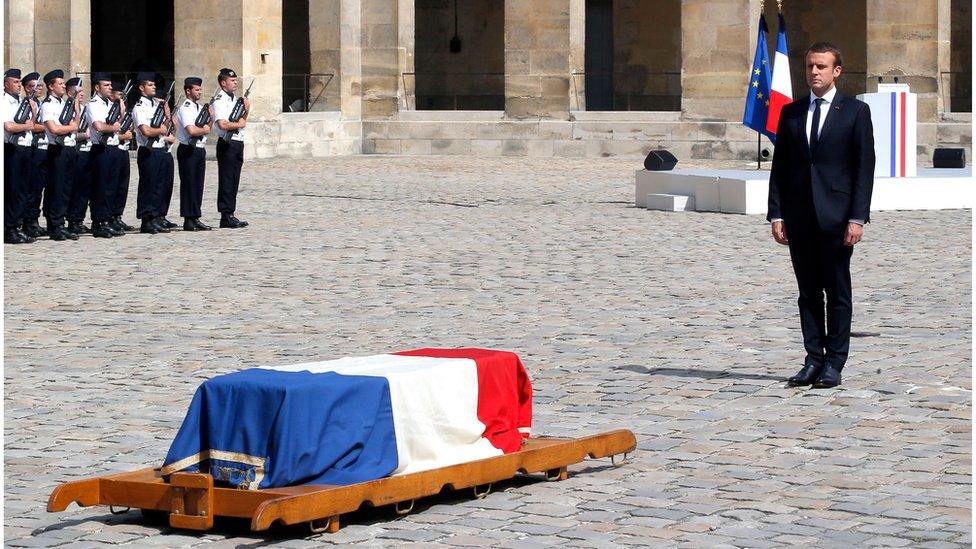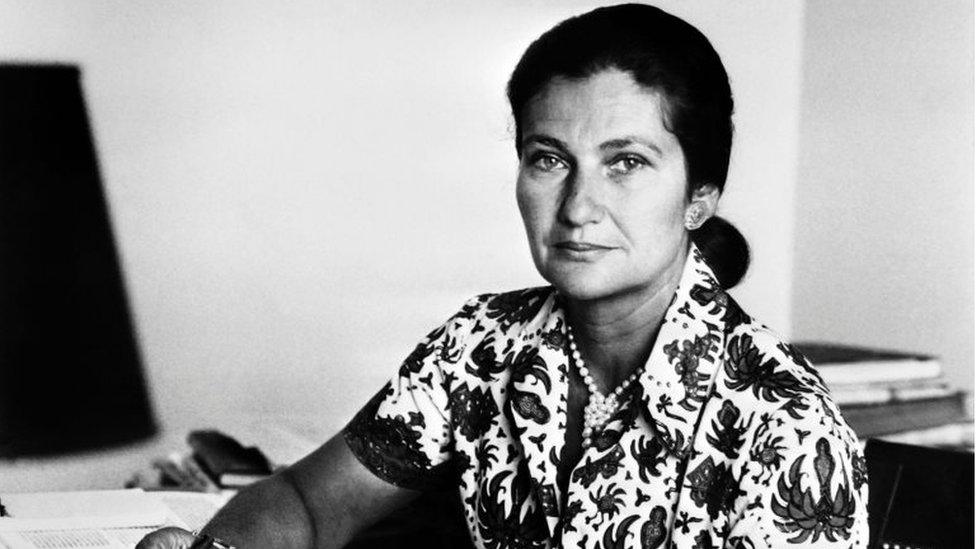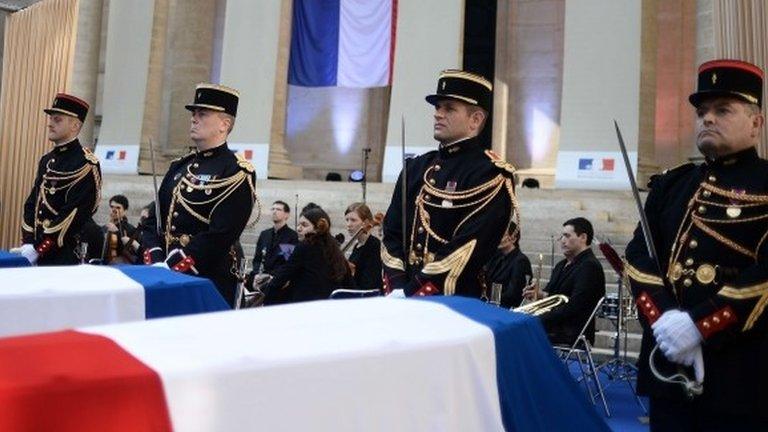France's Simone Veil honoured with Pantheon burial
- Published

Simone Veil's funeral took place at Les Invalides in Paris
French politician, women's rights champion and Holocaust survivor Simone Veil will be buried in Paris's Pantheon mausoleum.
She will become the fifth woman laid to rest in the crypt, alongside 76 men.
President Emmanuel Macron paid tribute to her invincible spirit at her funeral at Les Invalides in Paris.
Ms Veil died last week, aged 89. The body of her husband, politician Antoine Veil, who died in 2013, will be moved to join hers in the mausoleum.
Writers Emile Zola, Victor Hugo and Alexandre Dumas, and scientist Marie Curie, are among others buried in the grand neoclassical building.
Interment is reliant on a parliamentary act for "national heroes".
President Macron said the honour showed "the immense gratitude of the French people to one of its most loved children".
"You have given our lives the light you had in you and which nothing or nobody was able to extinguish," Mr Macron told mourners.

Simone Veil was France's health minister in the 1970s
Born in Nice in 1927 as Simone Jacob, she was arrested by the Germans in 1944, alongside her family, and sent to Auschwitz and Bergen-Belsen.
She became best known in France for her instrumental role in legalising abortion in the 1970s as minister of health, and went on to serve as the first president of an elected European Parliament.
She later re-entered French politics, returning to the cabinet in the 1990s.
In 2010, she was deemed one of the 40 "immortals" of the Académie Française - a great honour in France.
Aside from Curie, the other women honoured with a Pantheon burial are two French Resistance members, Genevieve de Gaulle-Anthonioz and Germaine Tillion.
Sophie Berthelot, the wife of chemist Marcellin Berthelot, was also allowed posthumous entry to be buried with her spouse.
- Published30 June 2017

- Published27 May 2015
